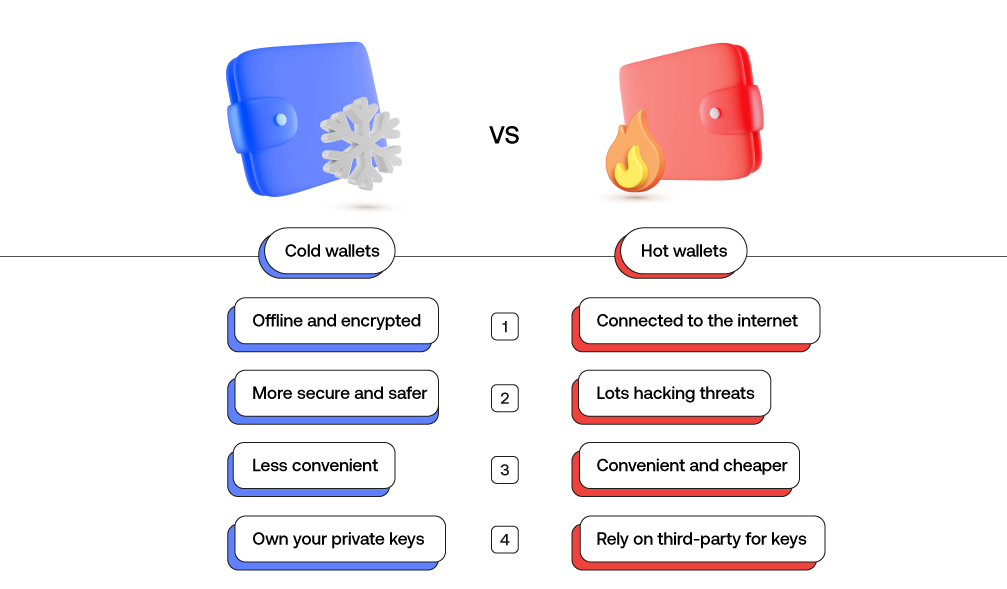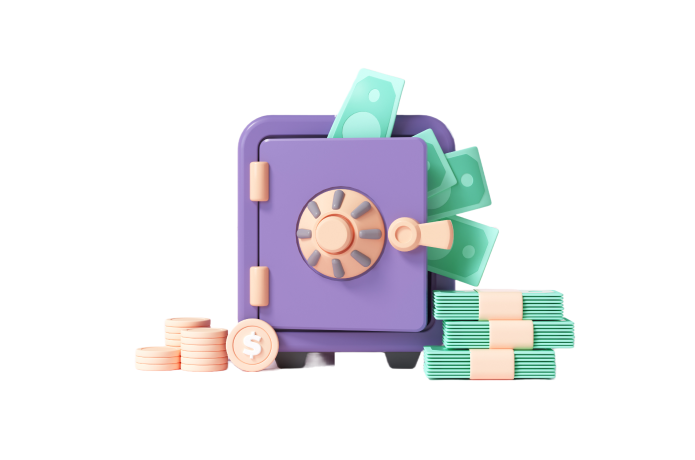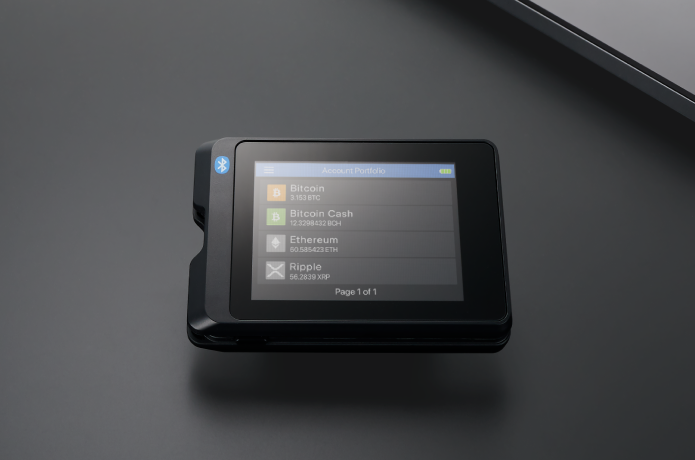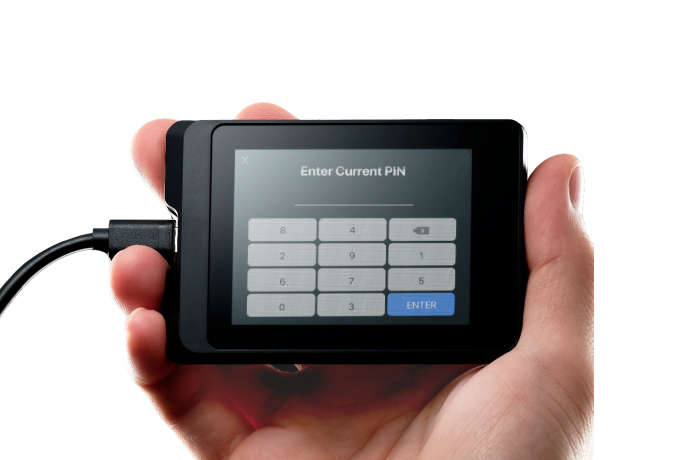
Cryptocurrency has seen its fair share of hacks and cybersecurity risks. How does an existing or new investor strengthen their trust in the digital sphere? The answer is with the right digital wallet choice. In other words, pick a cold wallet or hardware wallet. The terms can be confusing to some, but we’ll answer all of your questions about cold storage wallets.
Table of Contents
- Why Choose a Cold Wallet?
What are Cold Wallets?
Why pick a cold wallet? Let’s find out what it is first.
A cold wallet or cold storage wallet, is an offline wallet, meaning it is a physical wallet that stores a user’s private keys offline. This is in direct contrast to a hot wallet, which is an option that does connect to the internet.

Cold wallets encompass hardware wallets (a small physical device that stores your private keys) and paper wallets (your private keys written on a piece of paper or sheet of metal). We have a more comprehensive guide to the types of crypto wallets here.
In general, when we compare a cold wallet to a hot wallet, the difference is glaringly obvious – cold wallets are more secure.
Then why would anyone pick hot wallets? Hot wallets have some advantages over cold wallets such as the cost, and convenience. These reasons are usually enough to sway many beginners and even experts to pick hot wallets. After all, they are more affordable and connect to the internet so it’s easier to conduct crypto transactions and gain access to your crypto assets.
However, the one thing hot wallets lack compared to cold wallets is cybersecurity. This can be argued as the number one item that crypto investors should value over anything else when looking for crypto wallets.
When to Pick a Cold Wallet
When should you choose a cold wallet? If we had our way, we’d suggest everyone ONLY picks cold wallets because of the safety measures in place. What’s more important than ensuring the security of your digital assets? We understand the convenience the alternative hot wallets can provide, so we’ll put it this way – pick cold wallets when you have more digital assets than you’re willing to put at risk.
If you’re planning on long-term investing in crypto and making it a part of your investment portfolio or if you’ll be adding to the contents of your wallet regularly, then a cold wallet is the better choice.
Benefits of Cold Wallets
There is no question that a hot wallet also provides benefits, but a cold wallet is by far the winner because of the protection. Let’s take a deeper dive into what it can yield.
Security Measures
Cryptocurrency is still largely decentralized, which means there is no central authority that can protect you. Therefore, self-protection is key, and one of the best ways to keep your assets safe is with a cold storage wallet. A cold storage wallet is not connected to the internet, which greatly minimizes the chances of online hacks.

Hot and cold wallets both have security measures in place, but cold storage by far excels in this department. Since cold storage is offline, your private keys will not touch an online server, keeping it 100% safe.
If you do happen to lose your cold storage wallet, you can use your personal recovery phrase to access what’s inside. Keep in mind that you’ll lose access permanently if you accidentally misplace or forget your recovery phrase.
Long-Term Storage Method

As we mentioned earlier, if you plan on investing long-term in crypto, you need a place to store your valuable assets. Something meant to hold your cryptocurrency for the foreseeable future as you increase the funds over time will need the utmost security. This is why wallets that are not connected to the internet and are less likely to be hacked are the way to go.
Best Cold Wallets
We’ve been talking up cold wallets, and there are a lot of choices out there. So, which are the ones you should be looking at?
SecuX Nifty
The SecuX Nifty is the first NFT hardware wallet in the world. There is offline storage, multi-chain support, and the ability to view your NFT transaction signings. The Nifty has a military-grade Infineon SLE solid Flash CC EAL5+ Secure Element chip to protect your private key from potential threats. We also have a 2.8-inch color touchscreen to boost user-friendliness.
SecuX V20
Our V20 has a distinctive design, as well as the same large touchscreen and secure chip as the Nifty. The V20 has Bluetooth and USB connectivity as well making it compatible with both mobile devices and computers.
This vault-grade security cold wallet is undoubtedly compatible with your token of choice because we support 1000+ coins and tokens.
SecuX W20

Whether you’re a beginner or an expert, the W20 is one of SecuX’s top recommendations that works well with both mobile and desktop devices. It also features the military-grade Infineon SLE solid Flash CC EAL5+ Secure Element chip as our other models and is compatible with coins, tokens, and NFTs.
SecuX W10

The W10 is our best-value wallet, and it still has all of the military-grade security features found in our other options. In addition to the features listed above, the SecuX W10 also has a tamperproof seal, a large touchscreen, a dynamic keypad, and PIN protection.
FAQ
Why is a cold wallet better than a hot wallet?
A cold wallet is better than a hot wallet because it is offline. Since it is not connected to the internet, a cold wallet is less susceptible to cyber-attacks and hacks.
What are the disadvantages of a cold wallet?
The disadvantages of cold wallet options are the cost and the convenience. In general, cold wallets are more expensive due to their robust security, which also makes it more difficult to access the contents.
Conclusion
Did you already invest in a hot wallet? That’s okay, because you can transfer your assets to a cold wallet easily. With SecuX’s wallets, we support various coins, tokens and NFTs (with SecuX Nifty) from different blockchains. Cold storage wallets are by far the more secure option, but there could still be benefits to investing in both types.
Related Articles:
- What Is a Crypto/NFT Wallet? – Your Questions Answered
- Are Crypto Wallets Safe?
- Discord NFT Hack Attempt Thwarted by Good Wallet Hygiene
0 comments